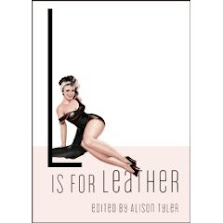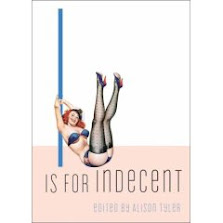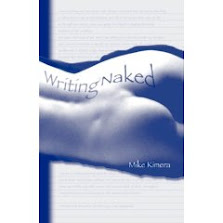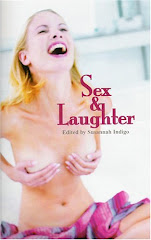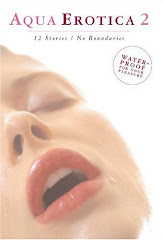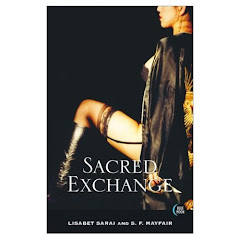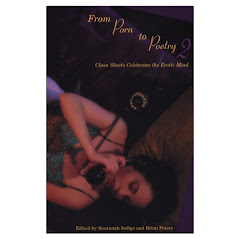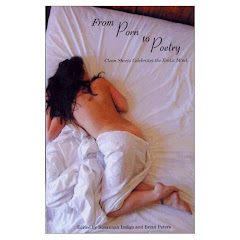On New Years Day I took some time out to look back on which authors I had enjoyed reading in 2006. I know how anorak that would sound to the non-reader but I’m sure present company will understand the quiet pleasure to be gleaned from browsing my shelves, handling the books again, recalling when I read them and what it felt like and placing the best of them on a table for closer inspection. This is the avid reader’s equivalent of the sports fans “review of year” show: which recall the best plays of the year.
At the end of my browse I realised that all the books on my table were genre novels: Crime, Science Fiction and Fantasy, and Fiction for Teens:
I love genre writing because it proposes a very specific contract between writer and reader. The writer will structure the novel within a formal framework that the reader knows well and will demonstrate their mastery of it but will also seek to innovate in ways that surprise and delight. The reader will read with attention, applying their knowledge of the genre to try and guess where the writer is going, picking up small nuances and references that add salt to the meat of the writing, and mentally applauding a well executed move or a new idea. The genre reader and the genre writer have the same kind of relationship as the audience at the Proms has with the orchestra: they share a language and a sensibility that allows them to appreciate each other.
I always read a lot of genre books but in most years there are two or three mainstream books that I want to pass on to others and say, “Read this, your life will be richer for it”. This year the genre books had crowed out the mainstream, perhaps because I’d found some new authors and had gorged myself on their back-catalogues. I confess myself guilty of binge-reading. So here’ my top ten writers for 2006:
Crime
Harlan Coben: especially “The Innocent” and “Deal Breaker”
Lindsey Davis: “See
Janet Evanovitch: “Eleven On Top” and “Twelve Sharp”
Barbara Nadel: “Dance With Death” and “Last Rights”
Sara Paretsky: “Fire Sale”
Science Fiction and Fantasy
E.E. Knight: The Vampire Earth series, starting with “Way of The Wolf”
Maureen McHugh: “
Terry Pratchett: “Going Postal” and “Thud”
Children’s Books
James Patterson: “Maximum Ride: The Angel Experiment"
Philip Pullman: “Northern Lights”, volume one of the “His Dark Materials” trilogy
Seven of my Top Ten are writers that I’ve enjoyed for many years. They are like old friends who make you smile just by being there. I enjoy seeing how they’ve grown, what they still do well, what new things they’ve added. Some of the authors have worked with the same characters for many years. The risk is that the characters get stale and the plot lines get thin, but the best of them avoid these traps and keep things evolving.
There are three “new” authors on my list: Coben, Knight and
My first new discovery of the year was E. E. Knight, creator of the “Vampire Earth” series. I took the opportunity to visit Barnes and Noble when I was on a business trip to
In the Vampire Earth series Knight manages to create a frightening future where bad things happen to good people and sometimes good people do terrible things. In Vampire Earth action and inaction both have a price and the characters carry the scars of paying it. Knight understands war from the point of view of the soldier fighting it. He also understands war from the point of view of the Quisling profiting from it. Give the books a try. The early ones are fresh and engaging. The later ones are grim and compelling.
My next find was Harlan Coben, a crime writer out of
The last new author on my last is the most exciting: Philip Pullman.
Everything about
The heroine of “Northern Lights” is a young girl who
OK, that’s my gush of first loves over with. Let me share the other authors with you.
Crime
Lindsey Davis: “See
Janet Evanovitch: “Eleven On Top” and “Twelve Sharp”
Janet Evanovitch, another
Barbara Nadel: “Dance With Death” and “Last Rights”
I’ve read all of Nadel’s books about a Turkish Police Inspector called Cetin. I think they are some of the best police books in print. Nadel lets her character’s grow. Time passes for them from book to book. Each book tackles something about Turkish society. Her plots are strong and her writing is clean. “Dance With Death” the latest book in this series, would have been enough to get her into my Top Ten but what really delighted me this year is her new book “Last Rights”, set in the London Blitz and introducing Francis Hancock a shell-shocked survivor of the Great War who runs the family funeral business in the East End. Hancock is frail and magnificent: broken, brave and haunted. The world he inhabits is nightmarish and convincing. A good part of the fascination of this book is the depth of knowledge of the East End of London in 1940. I look forward to more books set here.
Sara Paretsky: “Fire Sale”
When I first read Paretsky’s V.I. Warshaski books in the 80s, it was a novelty to have a kick-ass female detective. VI was the embodiment of feminism, tough, competitive and fashionably dressed. Paretsky and VI have both grown up since then. Paretsky’s books have moved beyond feminism into a more politically aware exploration of the issues of justice, power and the unequal treatment of the rich. Paretsky’s writing is clean and clear. She creates memorable characters and sends a strong message without preaching. I left my copy of “Fire Sale” on a plane when I was three chapters in. It took me two months to track down another in
Science Fiction and Fantasy
Maureen McHugh: “
In a bookshop you’d find it in the Science Fiction section. In your heart I think you’d file it under „The truth about learning to live with being foreign“.
This is a book full of sadness. It is not one of those SF books that are filled with irrepressible optimism about the transformational power of technology, yet this is a redemptive quality theme in it.
The main character loses everything, her family, her clan, her identity, everything except her life. She comes to know the loneliness and isolation and tension of being foreign, of having a sense of yourself that no one will ever understand in the same way that you understand yourself. And eventually she comes to understand what it means to come home.
This told in clean simple first person prose, stark and true, that has an emotional power that seems as inevitable and unstoppable as a monsoon rain.
Terry Pratchett: “Going Postal” and “Thud”
Pratchett’s Discworld novels get better and better. Although his work is thought of as comic, at the heart of every novel is a serious idea. You get to the idea through complex plots, comic one-liners, and the conflicting perspectives of familiar characters. “Going Postal” looks at what is good and bad about the entrepreneurial spirit. “Thud” examines the hatred and misunderstanding across racial and religious divides. Both of them will make you laugh, lift your spirits, and keep you turning the pages but what lingers after you close the book is the sense that the world is more complicated than we choose to admit and that we should admit that choice is the most important thing we have.
Children’s Books
James Patterson: “Maximum Ride: The Angel Experiment".
I got to know Patterson through his novels about Detective Cross: ingenious, violent, fast-paced thrillers that translate well to film.
"Maximum Ride" is one of his books for teens. Still a thriller. Not so violent but the violence that there is not glamorised. Very fast-paced. It's about a group of kids with wings who have escaped from the lab they were mutated in and who are being chased by were-wolf like Erasers".
This is a fun, easy to read, rapidly paced, action book that makes you think, makes you like the players, and never ever has you skipping text.
As I read it's like have wind under your wings -you soar on Patterson's skill. He never wastes a word and he never fails to deliver.



